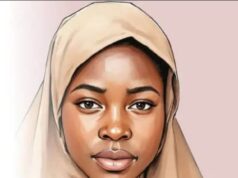
Former Nigeria military President, General Ibrahim Badamasi Babangida (IBB) and the incumbent democratically elected President, Goodluck Ebele Jonathan (GEJ) appear to share some form of similarities on the nation’s political platform. They may not be exactly the same anyway.
Recall that General Babangida, back in the dying days of his regime, was presented with a crucial choice of emerging and remaining the nation’s political hero forever and denying himself that trade mark also forever.
Look at the scenario playing out now, in which President Jonathan is presently being confronted with similar choice; of taking a personal decision, as in Babangida’s case, to remain the nation’s hero forever or otherwise, also forever.
And, in between General Babangida and Jonathan was the first black President of South Africa and incidentally, the butt of the colonial brigandage, late Sir Nelson Mandela, who had similar choice and decided on his own to go for that which would throw him up as a hero forever. He had ample opportunity, constitutionally, morally, rightly to contest election for second term in office: he even had the opportunity to plant himself as life President of the country he almost single-handedly wrenched from the colonialists, with his life hanging in the balance. But he did a term and quit, surprisingly, unAfrican. And, in the end, hero he became even in death!
Coming back to General Babangida, here was a fine military officer who was thrusted with the burden of leading this nation, and he did it fairly well. There were mouthfuls of physical developments across the country to his credit. Here was a fine military President who laid down careful, step-by-step programme for transformation of the country into a civilian democratic rule. Here was a military President who presided over, before then, the freest, fairest and, indeed, the best civilian election ever to be conducted in the country.
The thing he needed to do to earn the accolade of all Nigerians, of different political shades and opinions and become a hero forever would have been to hand over the government to who emerged winner of that election even if such winner would do only a day in office. That exactly was what his counterpart, General Olusegun Obasanjo did in 1979 and later came back to reap its fruit in abundance in 1999 (20 years later).
But, General Babangida chose, with whatever excuses he had, to deny not only the nation and the supposed winner of that election, late Chief MKO Abiola the pleasure of peace and unity, also himself the joy of picking the ticket of hero. And the stigma had clung to him upto recently, when he realized that the nation really was not keen in welcoming him into leadership reckoning again.
And now, President Jonathan, like it was noted earlier, is facing almost similar challenge, or is it a test?
He came in as President by share providence and luck, first as acting President and then substantive one when President Umaru Musa Yar’adua died while in office in 2009. Jonathan completed two of the four year tenure of late Yar’adua. And in 2011, he won the Presidential election for himself for another four years, to terminate in 2015.
Since coming in in 2009 for the first time and 2011, President Jonathan has taken every sector of the nation’s socio-economy in his own stride and made positive impact on the citizenry.
Even his political adversaries would not be fair not to admit that he has taken the nation to the height in such areas as revival of railways, construction and rehabilitation of thousands of kilometres of roads across the country: marked improvement in other areas like in power sector, agricultural sector, education sector, economic stabilization, youth and women empowerment, employment generation and numerous others.
As a matter of fact, it may not be an overstatement to say that he had achieved in all sectors of the socio-economic life of the nation within five years so far, that which some leaders could not achieve in 15 to 20 years.
And of course, the lingering insecurity, represented by Boko Haram has not been the making of his government, even though it has become a clog in the wheel of the development.
While on that, President Jonathan is being faced with both constitutional and moral challenges as the 2015 general election taxies to a takeoff, aside from the ethnic colouration that is looming at the background.
Here is a man who came in as a humble leader eager to make his mark on the nation’s psyche and was sincere to note early that it was not how long but how well a leader moves to contribute to the nation’s development that matters.
Surprisingly, President Jonathan, who is supposed to be well educated on the constitution of the federal Republic of Nigeria may just be preparing to declare his intention to run for the second term in office in 2015 not out of his personal conviction, but to satisfy some extraneous factors. Of course, there is nothing wrong in him contesting as even the chairman of the Board of Trustees of his Peoples Democratic Party (PDP), Chief Tony Anenih had recently declared for him, but the snag is this unclear issue as to whether the constitution envisages a situation where an occupant of the Presidency would spend a total of 10 years under any circumstance, special or otherwise. For, that is what is going to happen if he contests in 2015 and wins; he would have spent 10 years at the end of his tenure in 2019 and become, in the history of democratic practice across the world, the first to so enjoy the unusual tenure.
On the moral count, most Nigerians were not there when he was reported, by no other person than his political god-father or mentor, Chief Olusegun Obasanjo, to have once said that he was going to do only one term in office, the claim which he and members of his government had vehemently denied, even with doses of personal insults on Obasanjo.
And, on account of the heat generated by such claim and counter-claim, Chief Obasanjo had to suspend himself from PDP, promising to return to the party only when President Jonathan owns up to his promise (of doing one term). In this scenario, it is not doubtful that one of the two, either Obasanjo or Jonathan must be telling a lie. And the question is, what would Obasanjo derive from telling a lie against President Jonathan, and of course, why would President Jonathan be telling a lie against himself and even becoming so bitter with Obasanjo?
In this political, constitutional and moral milieu therefore lies the hidden voice which is whispering to President Jonathan for him to decide. The loud voice shouting and commanding him from, mostly those of his ethnic nationality and those who are immediate beneficiaries of his Presidency that it is his constitutional right to go for second term may be right, but the ultimate decision, after weighing all the prons and cons, is actually his.
After all, even if he spends 20 years as President, he will one day come down from the height and, of course, will certainly not be able to finish all the programmes and projects for Nigeria; he will certainly not be able to satisfy all Nigerians all the times of their lives at the end of it.
So, the choice, again, is entirely his: to tell Nigerians that because of certain circumstance, he will sacrifice his second term ambition by not contesting the 2015 Presidential election or going ahead pursuing his inalienable right for a second term, which, if he wins, will take him for another four years. Which in the end, is a twinkle of an eye! [myad]






